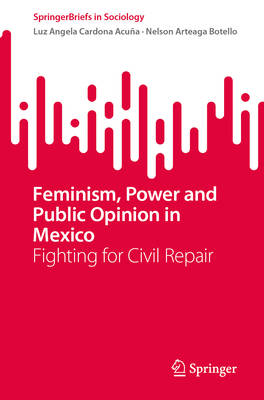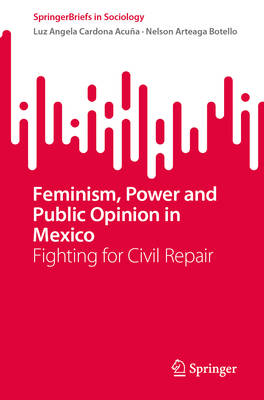
- Afhalen na 1 uur in een winkel met voorraad
- Gratis thuislevering in België vanaf € 30
- Ruim aanbod met 7 miljoen producten
- Afhalen na 1 uur in een winkel met voorraad
- Gratis thuislevering in België vanaf € 30
- Ruim aanbod met 7 miljoen producten
Feminism, Power and Public Opinion in Mexico
Fighting for Civil Repair
Luz Angela Cardona Acuña, Nelson Arteaga BotelloOmschrijving
This book shows how four feminist mobilizations in the early 2020s in Mexico expressed widespread rejection of harassment, sexual violence, and femicide. It discusses the cultural environment in Mexico that has allowed violence and femicides to be interpreted as a serious situation, to the point that it questions the authority of presidential power and mobilizes public opinion for and against it. It also talks about how feminist mobilizations are viewed positively or negatively within the same cultural environment provided by civil discourse. This analysis of disputes is essential because it allows readers to appreciate how the binary civil/anti-civil system attributed to presidential power and feminist mobilizations, and reproduced in public opinion, is translated into referents assumed as universal for action. The book examines women's movements and their relationship with presidential power and public opinion as a meaning-making process in which civil society discourse translates and also blocks exceptions of civil reparation: a process interpreted and signified in the light of historical sedimentations. This work complements feminist literature, studies on power and discourse, and social movements and is of interest to scholars and studients working in these fields.
Specificaties
Betrokkenen
- Auteur(s):
- Uitgeverij:
Inhoud
- Aantal bladzijden:
- 113
- Taal:
- Engels
- Reeks:
Eigenschappen
- Productcode (EAN):
- 9783032141408
- Verschijningsdatum:
- 4/01/2026
- Uitvoering:
- Paperback
- Formaat:
- Trade paperback (VS)
- Afmetingen:
- 156 mm x 234 mm
- Gewicht:
- 185 g

Alleen bij Standaard Boekhandel
Beoordelingen
We publiceren alleen reviews die voldoen aan de voorwaarden voor reviews. Bekijk onze voorwaarden voor reviews.







